Generative AI in Healthcare and Its Use Cases
Published: 19 Jun 2025
Generative AI is changing the way we look at healthcare. Traditional healthcare faces many challenges from long waiting times for diagnoses to the high costs of developing new treatments. For example, doctors can only analyze a limited amount of data during consultations which sometimes leads to missed opportunities for early detection. In contrast, generative AI can process massive amounts of data quickly which helps doctors to make faster, more accurate decisions.
This technology isn’t just a futuristic concept but it’s already making a real impact. Imagine a world where healthcare is not only more efficient but also tailored specifically to each individual. That’s the promise of generative AI. In this blog post, we will explore how generative AI is addressing the limitations of traditional healthcare and how its use is already transforming the field. Let’s take a closer look at the incredible possibilities it holds for the future of healthcare.

What is Generative AI?
Generative AI refers to a type of artificial intelligence that has the ability to create new content. Unlike traditional AI, which is often designed to analyze or predict based on existing data, generative AI can generate entirely new things such as images, text, music and even medical solutions. It learns from vast amounts of data and uses that knowledge to create something innovative.
In healthcare, generative AI goes beyond just analyzing patient data, it can generate new insights, predict outcomes and even simulate medical scenarios that haven’t occurred yet. For example, it can create synthetic medical images to train healthcare professionals or generate potential drug molecules that might not exist yet.
This is all possible because generative AI doesn’t just mimic patterns; it actively generates new ideas and this feature makes it a powerful tool in transforming healthcare practices.
What Makes Generative AI Special in Healthcare?
Generative AI is revolutionizing healthcare by creating innovative solutions based on vast amounts of data. Unlike traditional AI which typically analyzes data and makes predictions, generative AI takes it a step further. It doesn’t just look at what’s already there, it generates something new. This ability to create new content or data is what sets it apart and makes it so powerful in healthcare.
Understanding the Basics of Generative AI
Generative AI works by learning patterns from existing data and then using that knowledge to generate new data, models or even images. In healthcare, this means that AI can analyze historical medical data like patient records, lab results or even genetic information and use this information to predict future outcomes, generate new insights or even suggest new treatments.
For example, imagine a scenario where an AI system learns from past medical data to predict the likelihood of a patient developing a certain condition like diabetes. Based on this analysis, it can suggest personalized prevention plans or treatments before the condition even develops.
- Example: Generative AI could analyze a patient’s medical history and predict the onset of a heart attack days or even weeks before it happens, allowing doctors to intervene earlier and save lives.
Difference Between Traditional AI and Generative AI
While both traditional AI and generative AI use data to improve healthcare, the key difference lies in what they do with the data.
- Traditional AI: Typically used for analyzing data and making predictions. For example, it might help to predict the likelihood of a disease or identify patterns in existing medical data. It doesn’t generate new data but rather relies on existing information to make predictions or decisions.
- Generative AI: Goes beyond predictions. It learns from data and then creates something new. This could be generating synthetic medical data, creating high-resolution medical images from low-quality scans or even designing new molecules for drug development.
Example: Traditional AI might analyze a set of X-ray images to detect cancer but generative AI can take those images and create new, high-quality images to improve diagnostic accuracy or even simulate images of cancerous cells in a variety of scenarios to train doctors.
Generative AI’s ability to create new solutions makes it especially valuable in healthcare where innovation and quick adaptation are key to improving patient outcomes. By producing new data or insights, it helps doctors and researchers to move forward in ways that traditional AI can’t.
Key Use Cases of Generative AI in Healthcare
Generative AI is not just a buzzword; it is actively transforming the healthcare industry by creating new possibilities for improving patient care, streamlining operations and accelerating innovations. The healthcare field faces a variety of challenges from long treatment times and slow drug discovery processes to diagnostic errors and rising costs. Traditional methods often struggle with these limitations.
That’s where generative AI comes in and offers solutions that enhance personalization, reduce costs and speed up medical research and treatment. Let’s dive deeper into the key use cases of generative AI in healthcare and how it’s already making a significant impact.
1. Personalized Medicine
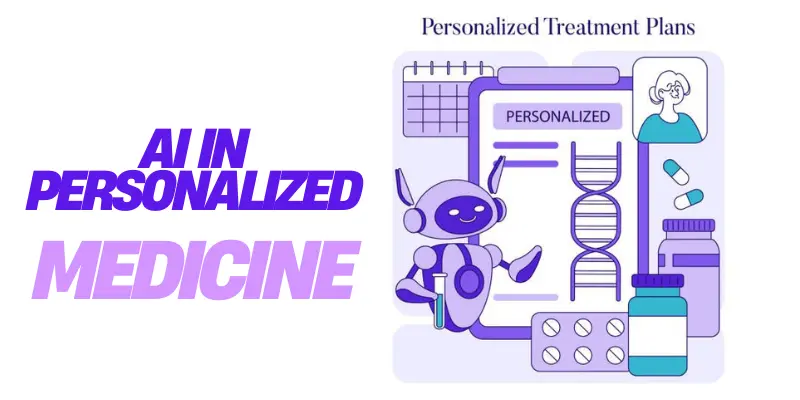
Personalized medicine represents a major shift in how healthcare is delivered. Instead of applying the same treatment to all patients, healthcare providers can now tailor treatments based on an individual’s genetic makeup, lifestyle and health history. Generative AI is a game-changer in this field, allowing for the analysis of complex, multi-dimensional data to create more effective and personalized treatment plans. Traditional medicine takes a one-size-fits-all approach but generative AI helps to adapt and refine therapies, offering a higher chance of success and fewer side effects.
- Analyzing Genetic Data: Generative AI can analyze genetic sequencing data to identify specific genetic markers associated with diseases and suggest personalized treatments.
- Custom Treatment Plans: By combining genetic data with lifestyle and medical history, AI generates individualized treatment plans that optimize outcomes.
- Predicting Disease Progression: AI models can predict how a disease might progress in an individual based on their unique health data, helping doctors adjust treatment strategies early.
- Identifying Drug Responses: AI can predict how different patients will respond to certain medications, reducing the trial-and-error period in prescribing drugs.
- Optimizing Health Management: By continuously analyzing patient data, AI can suggest adjustments to treatments as the patient’s condition evolves.
Example: For cancer patients, AI can analyze the genetic mutations of a tumor and recommend targeted therapies that would be more effective for that specific type of cancer, as opposed to generic chemotherapy. This leads to better treatment outcomes and fewer side effects.
2. Drug Discovery and Development

The drug discovery process is long, complex and expensive, often taking years before a new drug is ready for approval. Generative AI has the potential to shorten this timeline significantly by generating new drug molecules and simulating their effects on various diseases. By analyzing massive datasets of existing compounds and medical research, AI can predict how certain molecules will interact with specific diseases, vastly improving the efficiency of drug development. This speeds up the process, making it possible to find promising treatments much faster than traditional methods.
- Simulating Molecule Interactions: Generative AI can predict how new drug molecules will interact with diseases, accelerating the discovery of effective treatments.
- Optimizing Drug Properties: AI can generate molecules with improved properties such as better bioavailability, lower toxicity or fewer side effects.
- Repurposing Existing Drugs: AI can identify existing drugs that could be repurposed for new diseases, saving time and resources in the discovery process.
- Predicting Clinical Trial Success: Generative AI can model how a drug will perform in clinical trials, helping to identify the most promising candidates before expensive trials begin.
- Streamlining Preclinical Testing: By simulating the effects of new drugs on biological systems, AI can reduce the need for animal testing and early human trials.
Example: During the COVID-19 pandemic, AI was used to identify existing drugs that could potentially treat the virus, speeding up the process of finding viable treatments. This helped researchers focus on the most promising drug candidates, reducing the time it took to get treatments to market.
3. Medical Imaging and Diagnostics
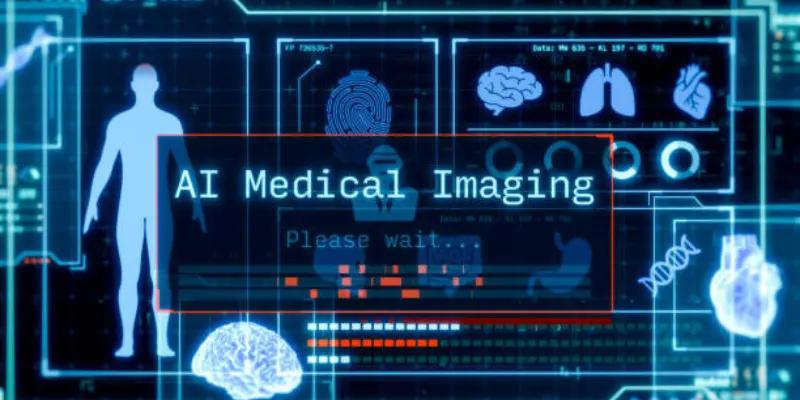
Medical imaging is one of the cornerstones of modern healthcare, providing essential insights into a patient’s condition. However, traditional imaging methods often face challenges like low-quality scans or human error in interpreting complex images. Generative AI enhances this by generating high-quality, detailed images from lower-quality or incomplete scans. Moreover, AI can identify subtle patterns that might be missed by the human eye, helping doctors make more accurate diagnoses and detect conditions earlier.
- Improved Image Resolution: Generative AI can generate high-resolution images from low-quality or incomplete scans, improving diagnostic accuracy.
- Early Detection of Diseases: AI can spot signs of diseases like cancer or heart disease at an earlier stage when treatment is more effective.
- Quantifying Disease Progression: AI models can track how a disease is progressing by analyzing changes in medical images over time.
- Reducing Diagnostic Errors: AI assists doctors by pointing out anomalies in medical images, reducing the risk of missed diagnoses.
- Automating Image Analysis: AI can automatically analyze medical images, saving time for healthcare professionals and allowing them to focus on patient care.
Example: AI is used in detecting early-stage lung cancer by analyzing CT scans. It can generate more detailed images from lower-resolution scans, allowing doctors to identify even the smallest tumors, leading to earlier treatment and better outcomes.
4. Virtual Health Assistants

Generative AI powers virtual health assistants that can help in managing patient care outside of traditional doctor visits. These AI-driven assistants track patient data in real-time, provide health advice, offer reminders for medication and even help with symptom management. Virtual assistants improve patient engagement and reduce the burden on healthcare professionals, allowing them to focus on more critical tasks.
- Real-Time Monitoring: AI-powered assistants monitor vital signs and symptoms offering personalized advice based on the data.
- Medication Management: Virtual assistants can remind patients to take their medications on time and alert them to potential interactions.
- Health Tracking: AI can track chronic conditions like diabetes or hypertension and provide recommendations for lifestyle adjustments.
- Virtual Consultations: For non-urgent matters, virtual assistants can handle initial consultations, guiding patients on the next steps or escalating to a healthcare professional when needed.
- Personalized Health Insights: Virtual assistants analyze data from wearable devices to offer personalized health insights, such as activity recommendations or diet changes.
Example: A virtual health assistant could help a patient with hypertension by reminding them to monitor their blood pressure, take medications and make diet changes to improve their condition. This constant monitoring helps the patient stay on track and avoid complications.
5. Synthetic Medical Data Creation
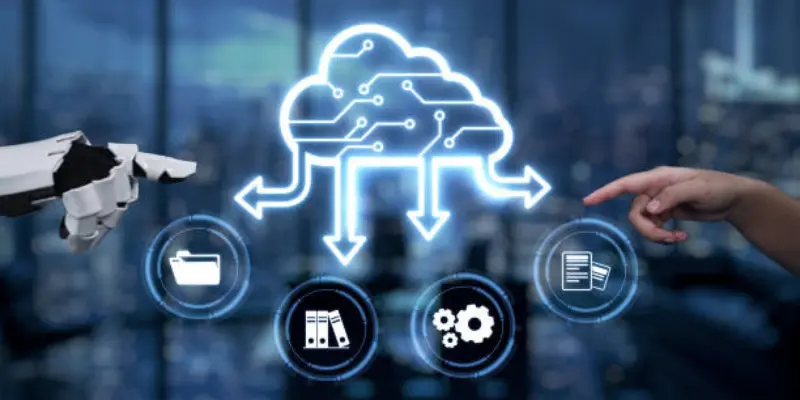
Creating synthetic medical data is essential in training AI models and research, especially when patient privacy is a concern. Generative AI can create realistic, synthetic medical datasets that mimic the structure and patterns of real data. This synthetic data can be used to train AI models without compromising patient confidentiality and it can also be used in medical research, simulations and education.
- Generating Patient Records: AI can generate synthetic patient records that resemble real medical data, helping to train AI models without exposing sensitive information.
- Simulating Disease Progression: AI can simulate how a disease will progress over time based on a synthetic dataset, helping researchers test different treatment options.
- Training Healthcare Professionals: Synthetic data can be used in educational settings to teach medical students how to interpret patient data and medical records without risking privacy breaches.
- Testing AI Models: AI models can be trained on synthetic datasets to improve their performance before they are tested on real-world data.
- Enhancing Research Opportunities: With synthetic data, researchers can experiment with new treatment models and algorithms without worrying about data restrictions.
Example: AI can generate synthetic medical records for training purposes allowing healthcare professionals to practice diagnosing diseases like diabetes or heart failure without using real patient data. This helps to maintain privacy while still providing valuable hands-on experience.
6. Robotic Surgery

Robotic surgery has been a growing field in healthcare by offering precision, faster recovery times and less risk of human error. Generative AI enhances robotic surgery by enabling machines to learn from past surgeries, improving their ability to make real-time decisions during an operation. AI can analyze a patient’s condition, assist surgeons with precise movements and even predict the best surgical approach based on the patient’s unique anatomy.
- Enhanced Precision: AI-guided robotic systems can assist surgeons by performing delicate and complex tasks with incredible precision, reducing the risk of human error.
- Real-Time Adjustments: AI can analyze real-time data from the patient during surgery and help in making adjustments to instruments and make sure the best possible outcome.
- Smarter Pre-Surgery Planning: Generative AI can create detailed 3D models of a patient’s body to plan the surgery, anticipating potential challenges.
- Faster Recovery: Because robotic surgery is less invasive, patients often experience less trauma and can recover faster than with traditional methods.
- Cost Efficiency: By reducing the time spent in the operating room and improving accuracy, robotic surgery can lower overall healthcare costs, making it more accessible to patients.
Example: In a robotic-assisted heart surgery, AI can help the robot make real-time adjustments as the surgeon operates, ensuring that the heart is handled with care and precision. This minimizes tissue damage and helps the patient recover more quickly.
Generative AI is proving to be a revolutionary force in healthcare, offering solutions to some of the industry’s biggest challenges. From improving personalized care and speeding up drug discovery to enhancing diagnostic accuracy and generating synthetic data, the potential applications are vast. As this technology continues to evolve, we can expect even greater improvements in patient outcomes, operational efficiency and overall healthcare delivery.
The Benefits of Generative AI in Healthcare
Generative AI is not only transforming how healthcare operates but also offering significant benefits that improve patient care, enhance efficiency and reduce costs. By creating new data, models and insights, generative AI addresses many of the current challenges faced by healthcare systems. Here’s a look at some of the major advantages it brings to the table.
1. Improving Patient Care and Outcomes
Generative AI has the potential to greatly improve patient care by providing healthcare professionals with more accurate, data-driven insights.
- Early Diagnosis: By analyzing medical records and diagnostic images, generative AI can spot signs of disease before symptoms even appear, giving doctors a head start on treatment.
- Personalized Treatments: AI can create customized treatment plans based on a patient’s specific medical history, genetics and lifestyle, resulting in more effective therapies.
- Predicting Disease Progression: Generative AI can predict how a disease will progress in an individual, allowing doctors to take preemptive action to manage the condition more effectively.
- Better Decision-Making: AI generates insights that assist doctors in making more informed decisions, minimizing the risk of errors.
- Patient Monitoring: Through virtual assistants and wearable devices, AI can continuously monitor patient data, providing real-time updates to caregivers and alerting them to potential issues.
2. Reducing Healthcare Costs
Generative AI can help lower healthcare costs by improving the efficiency of medical processes, reducing errors and optimizing resource usage.

- Automation of Routine Tasks: AI-powered tools can handle administrative tasks like scheduling, billing and patient record management, freeing up medical staff to focus on patient care.
- Optimizing Drug Development: By accelerating the drug discovery process and identifying promising compounds earlier, AI can reduce the time and cost involved in bringing new treatments to market.
- Reducing Diagnostic Errors: AI’s ability to analyze medical images and data can help reduce human error, ensuring that diagnoses are more accurate and leading to fewer unnecessary treatments or tests.
- Streamlining Operations: AI can optimize hospital operations by managing patient flow, predicting staffing needs and ensuring that resources are used efficiently.
- Improved Resource Allocation: By predicting patient needs and disease trends, AI can help to allocate medical resources more effectively, reducing waste and ensuring that healthcare systems operate at their best.
3. Speeding Up Healthcare Processes
Generative AI is speeding up various healthcare processes from diagnosis to treatment. The ability to quickly analyze large volumes of data allows healthcare professionals to make faster decisions, reducing waiting times and speeding up treatment.

- Faster Diagnosis: AI can analyze medical images and patient data in real time, providing faster diagnostic results that help doctors begin treatment without delay.
- Accelerated Drug Discovery: AI can simulate drug interactions and predict the effectiveness of compounds, dramatically shortening the time required to discover new drugs.
- Quicker Decision-Making: With generative AI generating new insights, healthcare providers can make quicker, more informed decisions without waiting for lengthy data analysis.
- Enhanced Clinical Trials: AI can optimize the clinical trial process by predicting which patients are most likely to respond to certain treatments, speeding up recruitment and ensuring trials are more effective.
- Improved Workflow: AI streamline healthcare workflows by automating repetitive tasks and ensuring that doctors and nurses can focus on patient care rather than administrative duties.
4. Enhancing Data Security and Privacy
In healthcare, patient data security is a top priority and generative AI plays a key role in ensuring that sensitive information remains protected.
- Synthetic Data Generation: AI can generate realistic synthetic datasets, allowing researchers to use data for training AI models or conducting studies without exposing real patient information.
- Improved Data Encryption: AI can enhance security by detecting potential data breaches in real time and ensuring that patient information is encrypted and protected.
- Anonymizing Data: AI can anonymize patient data while retaining its usefulness for research, ensuring privacy while enabling progress in healthcare innovations.
- Access Control: AI systems can help to manage access to sensitive medical data, ensuring that only authorized personnel can view or use certain information.
- Compliance with Regulations: AI can help to make sure that healthcare systems comply with privacy laws like HIPAA by automatically monitoring and enforcing data protection policies.
5. Enabling Remote Healthcare
Generative AI is also playing a crucial role in expanding access to healthcare, especially in remote or underserved areas.
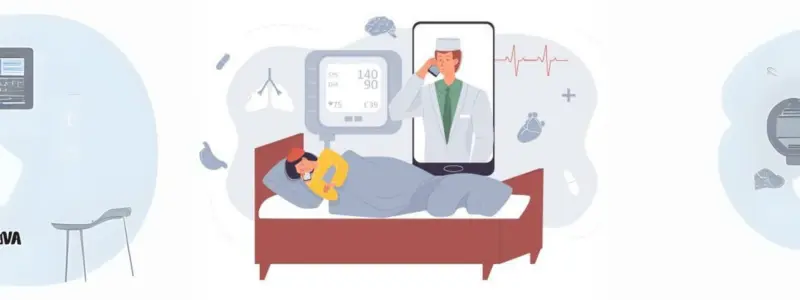
- Virtual Health Consultations: AI-powered platforms can conduct initial consultations with patients, offering advice or directing them to the appropriate specialist, even when a physical visit isn’t possible.
- Remote Patient Monitoring: AI can track patients’ health data through wearable devices, allowing doctors to monitor conditions like heart disease or diabetes remotely and intervene when necessary.
- Telemedicine Integration: AI can integrate with telemedicine systems, offering automated diagnostics and treatment suggestions to healthcare providers conducting virtual visits.
- Predicting Health Needs: AI can predict when a patient’s condition might worsen, prompting early intervention before the patient requires emergency care.
- Global Reach: Generative AI bridges the gap between healthcare providers and patients, making medical expertise accessible to rural or remote locations.
Challenges and Concerns in Using Generative AI in Healthcare
While the potential benefits of generative AI in healthcare are vast, there are also major problems with AI in healthcare that must be addressed. The integration of AI into the healthcare system brings with it questions around data privacy, the potential for bias in AI models and the ethical implications of relying on machines for critical decisions. Understanding these challenges is key to making generative AI can be used safely and responsibly in healthcare.
1. Data Privacy and Security
In healthcare, patient data is highly sensitive, and protecting it is crucial. The use of generative AI requires large amounts of data which raises concerns about how patient information is collected, stored and shared.
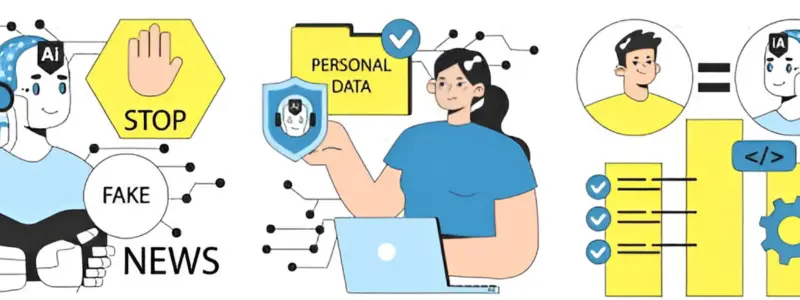
- Data Breaches: Healthcare data breaches have become more common and with AI systems handling large volumes of personal health data, the risk of a breach increases.
- Sensitive Information: AI systems that use real patient data for training could unintentionally expose sensitive information if not properly secured.
- Lack of Transparency: Some AI systems are seen as “black boxes,” meaning their decision-making processes are not always transparent, which can lead to concerns about how patient data is used.
- Compliance with Regulations: Healthcare AI systems must comply with data protection laws like HIPAA or GDPR which can sometimes be challenging to implement across different systems.
- Misuse of Data: Without proper oversight, patient data could be used in ways that are not ethically sound such as for unauthorized marketing or research purposes.
2. Bias in AI Models
One of the most significant concerns with generative AI in healthcare is the risk of bias. AI systems are only as good as the data they are trained on and if the data contains biases, those biases will be reflected in the AI’s predictions and outputs.
- Unbalanced Data: If an AI model is trained on a dataset that lacks diversity (e.g., predominantly male or white patients), it may not perform as accurately for underrepresented groups.
- Disparities in Outcomes: Biased AI could lead to certain patient groups being misdiagnosed, mistreated or overlooked in favor of others, exacerbating existing healthcare inequalities.
- AI in Decision-Making: When AI is used to guide decisions such as treatment recommendations or diagnoses, bias in the model can directly impact the patient’s health outcomes.
- Lack of Accountability: If AI makes a biased decision that negatively affects a patient, it can be difficult to determine who is responsible, whether it’s the developers, healthcare providers or the AI itself.
- Reinforcement of Historical Bias: AI models might unintentionally reinforce biases present in historical healthcare data such as systemic underdiagnosis in certain demographics.
3. Ethical Considerations
The increasing reliance on AI in healthcare raises important ethical questions. As AI systems become more integrated into decision-making processes, there is a concern about the role of human judgment and the potential loss of personal touch in patient care.
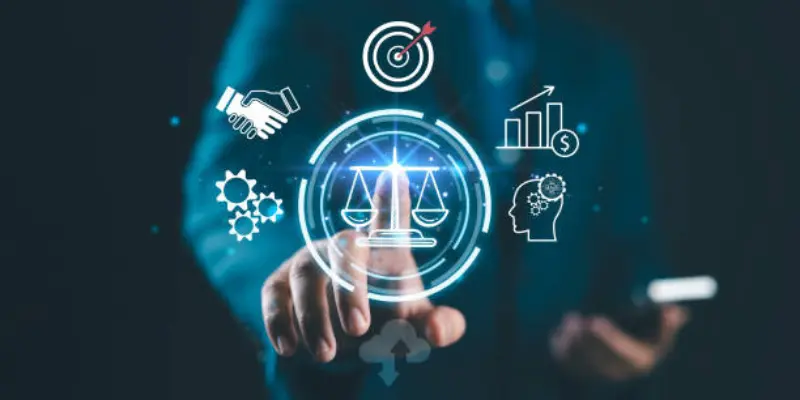
- Decision-Making Authority: Who is responsible when AI makes an incorrect or harmful decision? Should healthcare providers rely solely on AI, or should human oversight always be required?
- Informed Consent: Patients must be informed about how AI is being used in their care and give consent for its use. However, many patients may not fully understand how AI works, making it challenging to ensure informed consent.
- Patient Trust: As AI takes on a larger role in healthcare, patients may begin to question whether they can trust a machine to make critical decisions about their health.
- Impact on Doctor-Patient Relationship: Relying on AI for diagnosis and treatment recommendations could erode the personal connection between patients and healthcare providers.
- AI and Vulnerable Populations: Ethical concerns arise about the use of AI in vulnerable populations such as the elderly or those with cognitive impairments, who may not fully understand AI’s role in their care.
4. Regulation and Oversight
As with any emerging technology, the regulation of generative AI in healthcare is still catching up. There are currently limited regulations specifically governing the use of AI in healthcare and the rapid pace of innovation poses challenges for lawmakers and regulatory bodies.
- Lack of Standards: Without established standards, it can be difficult for healthcare providers to assess the quality and safety of AI systems before integrating them into their practices.
- Regulatory Gaps: Many regulatory bodies are still figuring out how to handle AI in healthcare which means that some AI applications might be used without proper oversight.
- Slow Adaptation: Healthcare systems, which tend to be slow to adopt new technologies, may struggle to keep up with the fast advancements in AI.
- Liability Issues: Determining who is liable when AI systems cause harm whether it’s the developers, healthcare providers or the AI itself is a complex issue that requires clear legal frameworks.
- International Differences: Different countries have varying regulations around AI, leading to inconsistencies in how AI is deployed in healthcare across the world.
5. Human-AI Collaboration vs. Replacement
There is a concern that AI could replace human healthcare providers, leading to job loss and diminishing the human element of care.
- Job Displacement: As AI takes over certain tasks, there’s a risk of healthcare workers losing their jobs, especially in administrative roles or areas where AI can perform tasks faster and more efficiently.
- Overreliance on AI: Overdependence on AI systems could lead to situations where healthcare providers stop using their own judgment, relying too heavily on AI recommendations.
- Balancing Automation and Human Care: While AI can handle repetitive tasks and data analysis, it is still crucial to maintain the human element in healthcare, particularly for tasks like patient communication, empathy and complex decision-making.
- Training Healthcare Workers: As AI becomes more integrated, healthcare workers will need to be trained in how to use AI effectively without letting it overshadow their own expertise.
- Ethical Dilemmas in Human-AI Decisions: In situations where AI systems disagree with human judgment, it can be difficult to navigate the ethical implications of who should make the final decision.
Future of Generative AI in Healthcare
Generative AI is rapidly advancing and its future in healthcare holds exciting possibilities. As the technology continues to evolve, we can expect even more innovative solutions that will further transform patient care, improve operational efficiency and extend access to healthcare for underserved populations. In this section, we will explore emerging trends, innovations and the potential of AI in remote healthcare.
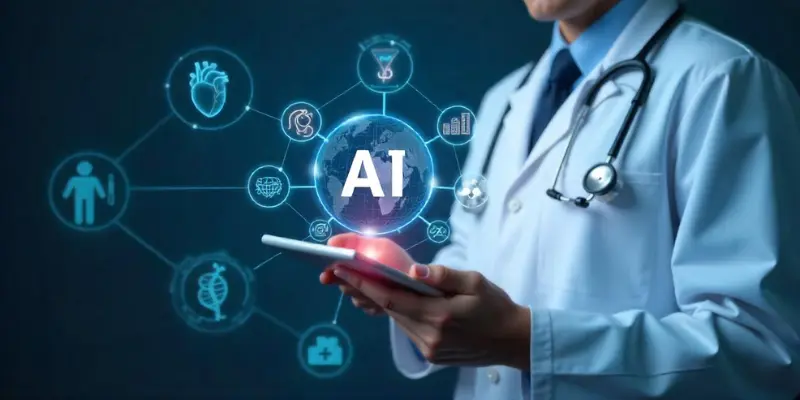
Emerging Trends and Innovations
The world of generative AI in healthcare is advancing at a rapid pace with new trends and innovations emerging regularly. These developments promise to bring about significant improvements in how healthcare is delivered and how medical professionals can leverage AI to make more accurate decisions. Here’s a look at some of the key trends to watch out for in the future.
- AI-Powered Diagnostics: AI’s role in diagnostics is expanding beyond medical imaging. AI systems are increasingly being used to analyze patient data in real-time to identify conditions, predict disease progression and even recommend treatment plans. As AI continues to improve, diagnostic tools will become faster, more accurate and more accessible, helping to detect conditions at earlier stages.
- AI-Driven Drug Development: Generative AI is set to revolutionize drug development even further. By creating novel compounds and predicting their effects on diseases, AI could reduce the time it takes to develop new treatments. AI will not only help to identify promising molecules but also assist in customizing drugs for specific populations, making treatments more effective and reducing side effects.
- Virtual Health Assistants: Virtual health assistants powered by AI will become more sophisticated, capable of providing personalized care, managing chronic conditions and even acting as intermediaries between patients and healthcare providers. These assistants will offer real-time monitoring and advice, allowing patients to manage their health more proactively.
- AI and Robotics: The integration of AI with robotic systems will continue to evolve, particularly in surgery and rehabilitation. AI-driven robots will assist surgeons in performing complex surgeries with greater precision and robotic systems will help with tasks like physical therapy, reducing the burden on healthcare providers and improving patient recovery times.
- AI in Predictive Healthcare: AI will become an essential tool for predicting future healthcare trends including disease outbreaks, health crises and demographic shifts. By analyzing vast amounts of historical data, AI systems will help healthcare providers and governments prepare for and respond to health challenges more effectively.
The Potential of AI in Remote Healthcare
Generative AI holds great promise for transforming the way healthcare is delivered, particularly in rural or underserved areas. One of the biggest challenges in healthcare is ensuring that everyone regardless of location has access to quality care. AI can help bridge this gap by enabling remote healthcare solutions that allow people in remote locations to receive timely medical attention without the need for in-person visits.
- Telemedicine: AI-powered telemedicine consultations will become more widespread, enabling patients to access healthcare from the comfort of their homes. AI can assist healthcare providers by providing real-time health data, offering automated diagnostics and recommending treatment plans during virtual consultations.
- Remote Monitoring: AI can continuously monitor patient health data through wearable devices or mobile apps, alerting healthcare providers to any significant changes in the patient’s condition. This remote monitoring allows for early intervention, particularly for patients with chronic conditions like diabetes, hypertension or heart disease.
- AI-Powered Chatbots: AI chatbots can offer immediate responses to medical questions, provide basic consultations and direct patients to the appropriate healthcare services, all while reducing the need for in-person visits. These bots can be especially helpful in areas where medical professionals are in short supply.
- Personalized Health Insights: AI can analyze data from remote monitoring devices and provide personalized health recommendations based on the patient’s specific condition. This empowers individuals to take charge of their health and make informed decisions without needing to visit a healthcare facility.
- Rural Healthcare Expansion: AI can help healthcare systems in rural areas by providing virtual consultations with specialists who might not be available locally. This means patients in remote locations can receive high-quality care without traveling long distances.
The future of generative AI in healthcare is promising with innovations on the horizon that will further improve patient outcomes and access to care. From AI-powered diagnostics and robotic surgery to remote healthcare solutions, the potential of AI to enhance healthcare delivery is vast. As technology advances, we can expect these innovations to become an integral part of the healthcare ecosystem, improving the quality of care and making it more accessible to people everywhere.
Essential Tips for Patients and Healthcare Providers
Generative AI has the potential to greatly improve healthcare but it is essential for both patients and healthcare providers to understand how to use it effectively and responsibly. Here are some tips to ensure that AI benefits are maximized while minimizing risks.
For Patients
- Stay Informed: Understand how AI is being used in your healthcare and ask your provider about the technologies they use. This will help you feel more confident in the care you’re receiving.
- Ask Questions: If AI is involved in your diagnosis or treatment, don’t hesitate to ask how it works and how it might impact your care. Transparency is key to building trust.
- Privacy Matters: Make sure your healthcare providers are following proper data security protocols to protect your personal and medical information when using AI tools.
- Use AI-Powered Tools Wisely: Embrace virtual health assistants, telemedicine and health-tracking apps, but always follow up with healthcare professionals for critical health decisions.
- Be Open to New Treatment Options: AI can help to identify personalized treatments. Be open to discussing new, AI-recommended therapies with your healthcare provider.
For Healthcare Providers
- Embrace AI as a Tool, Not a Replacement: While AI can provide valuable insights, always maintain your critical thinking and professional judgment when making decisions.
- Ensure Transparency: Be clear with patients about how AI is being used in their care. This helps to build trust and ensures patients are informed.
- Keep Data Secure: Ensure that patient data used in AI systems is protected and that you’re following all privacy laws and regulations.
- Stay Updated: AI technology is evolving quickly. Regularly update your knowledge about AI tools and how they can improve patient outcomes.
- Use AI for Early Detection: Leverage AI to detect conditions early, offering patients faster interventions and better treatment outcomes.
Conclusion
Generative AI is ushering in a new era of healthcare, with the potential to revolutionize how medical professionals diagnose, treat and care for patients. From improving personalized medicine and speeding up drug discovery to enhancing diagnostic accuracy and enabling remote healthcare, the applications of generative AI are vast and transformative.
While the benefits are clear, challenges such as data privacy, AI bias and ethical concerns must be addressed to ensure responsible use. As the technology evolves, AI will continue to play a crucial role in shaping the future of healthcare, making it faster, more accurate and accessible.
In short, generative AI is not just a passing trend but a transformative force that will redefine healthcare for the better, improving outcomes and expanding access worldwide.
FAQs about Generative AI i. healthcare
Here is the list of FAQs:
Generative AI learns from large sets of medical data such as patient records, diagnostic images and research findings. It uses this information to create new solutions like predicting diseases, generating medical images or even suggesting treatments. Essentially, AI helps healthcare providers make faster and more accurate decisions.
No, generative AI is not replacing doctors. It acts as a tool to support healthcare professionals by providing insights, predicting conditions and helping with complex data analysis. Doctors still make the final decisions and provide personalized care while AI assists in improving efficiency and accuracy.
Yes, AI can predict potential health risks by analyzing patterns in your medical history, genetic data and lifestyle. For example, AI might help predict the likelihood of conditions like heart disease or diabetes, allowing for earlier intervention and prevention strategies.
Generative AI systems are designed to protect patient data but it’s important to ensure that the healthcare provider follows privacy laws and uses secure systems. Always ask how your data is being handled and whether it is anonymized or encrypted to ensure your privacy.
AI is already being used to assist in diagnosing conditions by analyzing medical images or patient data. While AI can help doctors identify conditions more quickly and accurately, human doctors are still essential for interpreting results and providing the final diagnosis.
AI-powered tools such as virtual health assistants and wearable devices can track your symptoms, monitor vital signs and remind you about medication. These tools provide real-time feedback and can alert your healthcare provider if your condition changes, making it easier to manage chronic conditions like diabetes or hypertension.
Yes, AI can enhance the quality of medical images by generating high-resolution images from low-quality scans. This improves the accuracy of diagnoses and helps doctors detect conditions like cancer or heart disease at earlier stages when treatment is most effective.
It’s completely normal to have concerns about AI in healthcare. If you’re unsure, talk to your healthcare provider about how AI is being used in your care. Transparency and open communication are key to understanding how AI can benefit your health while maintaining trust in your care team.
AI can bridge the gap in rural areas by enabling telemedicine consultations where patients can get medical advice without having to travel long distances. It can also help healthcare workers in these areas make more informed decisions by providing real-time data analysis and remote monitoring.
While AI is highly accurate and improving over time, it’s not infallible. AI works best when combined with human expertise and it’s essential for healthcare providers to validate AI-generated recommendations. It’s important to use AI as a supportive tool rather than relying on it solely for critical health decisions.





